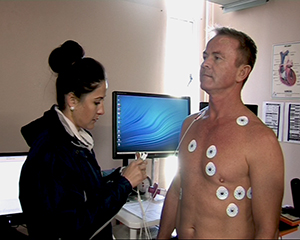Latest News Archive
Please select Category, Year, and then Month to display items
12 January 2024
|
Story Nonsindiswe Qwabe
|
Photo Sonia Small
 Since joining the UFS in 2008, Dr Grey Magaiza has worked extensively on approaches that can foster the socio-economic transformation of societies.
Since joining the UFS in 2008, Dr Grey Magaiza has worked extensively on approaches that can foster the socio-economic transformation of societies.
“The future should be one where communities can decide on their development agenda and futures. That’s the most important for me.” Dr Grey Magaiza, Deputy Director of the Centre for Gender and Africa Studies (CGAS) and Head of the Community Development programme on the Qwaqwa Campus, is passionate about capacitating communities to be agents of change and advancement. His vision for the future emphasises the empowerment of communities to take charge of their development by actively participating in decision making and the implementation of development projects that can improve their lives.
Since joining the UFS in 2008, Dr Magaiza has worked extensively on approaches that can foster the socio-economic transformation of societies. Over the years, he has crafted his research speciality into one that he is most proud of – being an interdisciplinary scientist immersed in the development of communities.
“I’m in a fortunate position of researching what I like. I say ‘fortunate’, because I’ve taken the time to understand what I’m passionate about, which is the overall field of rural livelihoods and livelihood futures – in short, community development. My research starts from an engaged university, understanding the elements that a university must use to enhance transformation and relevance to its immediate community in terms of development.”
One of the ways he has done this is by looking at social entrepreneurship as a development approach for young people in a rural setting. Through workshops with non-profit and civic organisations in Qwaqwa, Dr Magaiza has been helping these organisations to map out their needs and actively meet them through the involvement and support of external role players.
“We understand that communities are part of the national development agenda, but even that national agenda respects community knowledge and intentions and allows communities to shape their identity. A critical enabler of this is community organising. You bring back the capacity in communities to have dialogues on issues affecting them as spaces for engagement, knowledge exchange, and for people to just talk about their way forward.”
By enabling communities to define their development agenda, they can address their specific needs, challenges, and aspirations, he said. “When I look at livelihood futures, it’s quite an exciting aspect of my work – it’s like looking into a fortune tellers’ globe, because you’re not deciding for communities what they should do, but the communities themselves take those decisions.”
Department of Exercise and Sport Sciences introduces a new undergraduate programme in Biokinetics
2016-06-10

The Department of Exercise and Sport Sciences
launched the B Biokenetics programme,
which will be offered at the UFS from 2017.
Photo: Supplied
Bio + Kinetics = Life + Movement = life through movement
The Department of Exercise and Sport Sciences, now within the Faculty of Health Sciences School of Allied Health Professions, launched their new undergraduate programme in Biokinetics. The Bachelor of Biokinetics programme will be presented in its new format at the University of the Free State’s Bloemfontein Campus from 2017.
Biokinetics is the Science of Movement and the application of exercise in the rehabilitative treatment of performance, while its primary function is to improve physical functioning and health care through exercise as modality. The profession is concerned with health promotion, the maintenance of physical abilities, and final-phase rehabilitation by means of scientifically-based physical activity programme prescription.
The department has an exceptional multi-disciplinary team of lecturers and support staff with years of experience in Biokinetics, Sport Science, Kinderkinetics, as well as Sport and Recreation Management.
Admission to the programme is subject to selection and is based on academic potential and the extent and level of activity, in addition to that prescribed by academic curricula.
The closing date for applications is 30 August 2016.
For full details regarding selection criteria and applications, visit the Faculty of Health Sciences Facebook page or visit the faculty webpage.